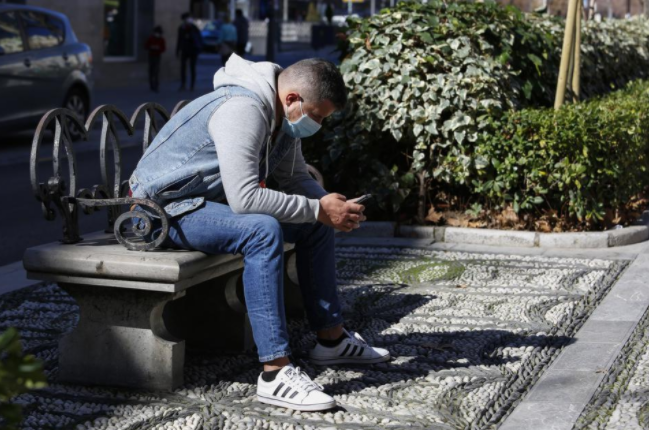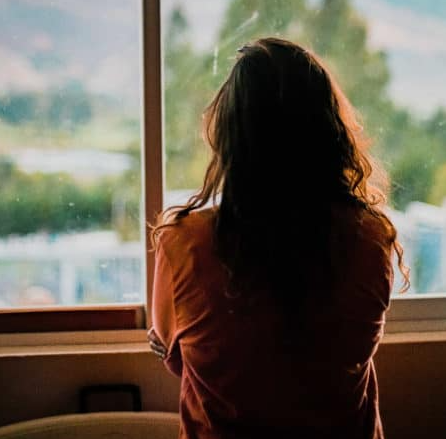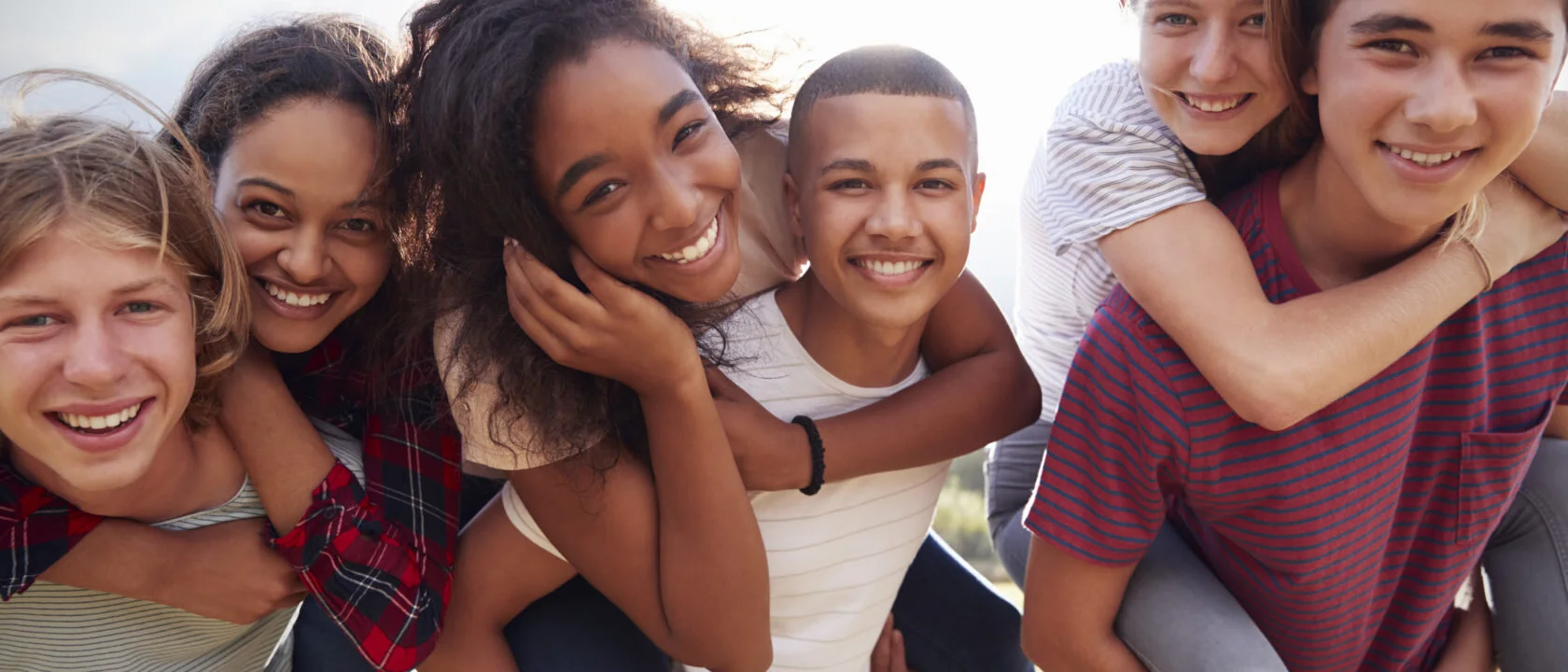"Loneliness has been indicated as a risk factor for overall mortality and conditions from stroke to heart disease. It is also associated with depression and anxiety," writes Anuradha Varanasi in Forbes about a new empathetic phone call program to reduce loneliness, depression, and anxiety.
Read MoreRead the latest from Making Caring Common!
You’re in the right place for our media coverage, blog posts, and event information. Our work spans a range of topics, all connected by our commitment to elevate caring and concern for the common good at school, at home, and in our communities. You can review what’s new below or use the dropdowns to sort by topic and category.
Be sure to join our email list and connect with us on Facebook, LinkedIn, and Instagram, to stay current with Making Caring Common’s news and updates. If you’re a member of the media, please visit our Media Room.
Sort by topic
- Access and Equity
- Bias
- Bridging
- Building Connection
- Bullying
- COVID
- CSN
- Caring and Empathy
- College Admission
- Consent
- K-12
- Mental Health
- Misogyny and Sexual Harassment
- Moral and Ethical Development
- Parenting
- Romantic Relationships
- School Culture and Climate
- School Integration
- Social-Emotional Learning
- State of Caring
- Turning the Tide
- Voter Mobilization and Civic Education
- Youth Advisory Board
Sort by category
"Even before the social distancing that exacerbated feelings of being alone, young people have been more susceptible to loneliness than older adults,” writes Lisa Endlich Heffernan in Grown and Flown. She discusses our new report, “Loneliness in America: How the Pandemic Has Deepened an Epidemic of Loneliness and What We Can Do About It.”
Read More“We find in our data that 61% of young people are reporting serious loneliness — that they're lonely either frequently, almost all the time, or all the time,” emphasizes MCC Faculty Director Richard Weissbourd in this interview with Emily Boudreau.
Our new research about was highlighted in the Harvard Graduate School of Education News article: Combatting an Epidemic of Loneliness.
Read More"We as parents ought to be willing to ask ourselves the hard, fundamental questions about who we want to be and what we want to model for our children,” says Rick Weissbourd in this report, Essential Articles on Parenting & Education, published by the Parents League of New York.
Read More“We may be failing to help our teens develop the critical cognitive, social and ethical capacities that are at the heart of both doing good and doing well in college and beyond,” said Making Caring Common director Richard Weissbourd. Our college admissions work was mentioned in this Spokesman - Review article.
In June of 2020, more than 300 admissions deans spoke out to encourage college applicants to be honest about the obstacles they have faced during the pandemic, as well as meaningful activities they've undertaken, such as caring for siblings, shopping for elderly neighbors, and writing thank-you notes to essential workers.
Read More“My guess is that at least some dads, because they have found real and deep gratification in their relationships with their kids during this time, will work hard to preserve this closeness," expressed Rick Weissbourd in USA Today.
This article mentions our research study that found a majority of fathers felt closer to their children during the pandemic.
Read More"It's not only an increase in quantity of time spent together, it's also an increase in quality... parents are willing to express vulnerability and are more able to get to know their kids better." Rick Weissbourd discusses our research about parental relationships with children during the COVID-19 pandemic in JAMA's podcast.
Read MoreHow can we enable students to engage respectfully and constructively students who don't share their political views? How can we help students bridge political divides during a time when the country is so divided?
Read MoreWhile this year has shed light on how politically divided Americans are, our new research brief shows that the majority of Americans are willing to make amends across the aisle. 83% percent of the 1,400 respondents surveyed earlier this year said they could respect someone who disagrees with them politically as long as the person respected them back. Emily Bernstein includes some of our insights in this Wall Street Journal article.
Read MoreIn June, more than 300 admissions deans spoke out to encourage college applicants to be honest about the obstacles they have faced during the pandemic, as well as meaningful activities they've undertaken, such as caring for siblings, shopping for elderly neighbors, and writing thank-you notes to essential workers.
Read more about our collaboration with the deans in Good Housekeeping Magazine.
Read More"Kindness is what gets our families healthy, our country healthy. It's how we live together so we’re constructive and joyful. If we don’t take care of each other, we won’t survive.” - Rick Weissbourd, Making Caring Common Faculty Director.
National Geographic’s Jamie Kiffel Alcheh emphasizes the benefits of kindness for kids’ health and gives some tips on how to teach kindness and kind things that kids can do.
Read MoreWhether students are younger or older - learning in person or online - asking caring questions and listening to others can set the stage for sharing and promoting trust and connection in the classroom. Helping students learn and practice these skills can help them build relationships, understand their own thoughts and feelings and those of others, and make them feel heard.
In this webinar from Harvard’s Making Caring Common project, now available on demand, educators will learn strategies for building a caring community by developing student listening skills. Click through to watch now!
Read MoreWhile this year has shed light on how politically divided Americans are, our new research brief shows that the majority of Americans are willing to make amends across the aisle. 83% percent of the 1,400 respondents surveyed earlier this year said they could respect someone who disagrees with them politically as long as the person respected them back. Emily Bernstein includes some of our insights in this Wall Street Journal article.
Read MoreHas the pandemic brought you closer to your kids? Rick Weissbourd discusses our recent report on Boston 25 News.
"A significant majorities of fathers are spending more relaxed time with their kids, asking their kids questions, learning about their kids"
Read MoreHelping students develop greater empathy is essential for building a positive school climate, but equally important is considering who students have empathy for. Children and adults alike are predisposed to empathize for those who are in their own social group. But empathy for many different kinds of people is important in its own right; it is the basis for children’s developing conceptions of and commitments to fairness and justice.
In this on-demand webinar from Harvard’s Making Caring Common Project, educators will explore our Circle of Concern strategy, which is designed to help children become more aware of those for whom they do and do not have empathy.
Click through to watch the webinar now!
Read MoreWill the pandemic revolutionize college admissions? MCC team members Rick Weissbourd, Trisha Ross Anderson, and Brennan Barnard reflect on how lockdowns are forcing schools to consider a range of other approaches for selecting students.
Read MoreAccording to College Express, “Standardized tests, extracurricular activities, campus visits, and other events have been canceled as a result of COVID-19, and many students are worried their college applications will be hindered by these missing links. “
This article discusses our report: “Care Counts in Crisis: College Admissions Deans Respond to COVID-19.”
Read MoreRead Rick Weissbourd's Q&A with The Harvard Gazette’s Colleen Walsh on the future of college admissions and the new statement from admissions deans about what they expect from students during the pandemic.
Read MoreTeen Vogue’s Zach Schermele talked with Richard Weissbourd about our report, “Care Counts in Crisis: College Admissions Deans Respond to COVID-19.”
Read MoreEnsuring that every student has a positive relationship with at least one school adult is more important – and harder – than ever.
Whether students are learning from a distance or in a traditional setting, a positive connection to at least one school adult — whether a teacher, counselor, sports coach, or other school staff member — can have tremendous benefits that include increased engagement, reduced bullying, and improved social-emotional capacities.
Read More




















